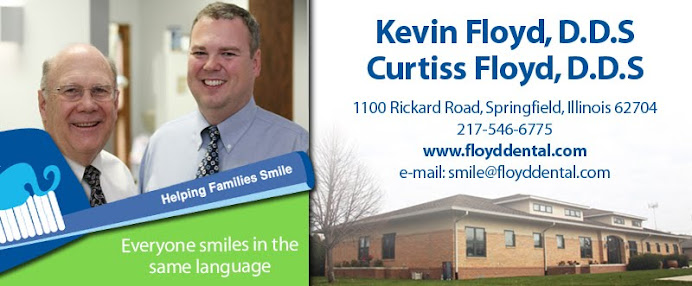MOM'S DIET
Special dietary instructions should be followed as prescribed by an obstetrician or family physician, including correct use of the Basic Four Food Groups (Food Guide Pyramid) for better dental health of baby. Foods eaten by mother provide the materials which build baby's body and begin forming baby's teeth. Mother's diet should include the Basic Four Foods with special emphasis on:
1. Elimination of refined starchy foods and sugar such as dry sweetened cereals, chips, cookies, cakes, candies and soda pop - using as substitutes moderate amounts of unrefined foods. Those include fresh vegetables, and fruit, whole grain breads and crackers, unsweetened cereals, potatoes, cooked dry beans, peas and corn.
2. Avoid skipping meals and emphasize three balanced moderate sized meals with small snacks between consisting of nutritious foods (no sugars).
3. Basic Four Foods
a). 4 servings daily of low fat (or skim) milk, cheese or yogurt.
b). 2 to 3 servings of complete protien food such as meat, fish, poultry, cheese or eggs.
c). Fruits and Vegetables: At least one serving daily of citrus fruit or tomatoes and three servings daily of other fruits and vegetables including a serving of dark green and dark yellow vegetables.
d). Four servings of whole grains a day such as whole wheat bread and crackers, brown rice and whole grain cereal.
e). 6 to 8 glasses daily of liquids consisting of water, low fat or skim milk, unsweetened fruit and vegetable juices. Avoid all alcoholic beverages, soda pop and sugared friut drinks; limit coffee and tea.
4. Take vitamin-mineral supplements as prescribed by your physician daily.
EXPECTANT MOTHER'S DENTAL CARE
Professional Dental Care - Regular dental visits should be continued throughout pregnancy. The best possible care can be provided to help you keep your teeth and gums healthy during this special time.
A complete dental history should be taken if you have not been to a dentist recently, and your dentist may talk with your physician if any abnormal conditions exist. This information will help your dentist decide if it is necessary to modify the type of treatment given and determine the best time for treatment.
Non-emergency (elective) treatment can be performed safely during pregnancy. However, treatment maybe avoided during the first and last three months for a number of reasons. First, if you have a history of miscarriage, are threatening to miscarry, or because of other medical conditions, your dentist may recommend that treatment be posponed until later in the pregnancy or after delivery. Secondly, some pregnant women may be more anxious, more nervous, or subject to gagging during the first few months of pregnancy. If these conditions exist, first discuss your fears with your dentist. Special care will be taken to insure that you do not experience unnecessary physical or emotiomal stress. If your dentist does not think you can tolerate the suggested dental treatment, most often it can be postponed.
Finally, the last months of pregnancy may be uncomfortable for the mother to sit in the dental chair for extended periods. In addition, if you have a history of premature babies, treatment should also be avoided during this time. For your peace of mind and comfort, the fourth to sixth months of pregnancy are usually the best time for treatment.
X-Rays - The dentist uses x-rays to help detect dental caries and other problems. Only the x-rays that are necessary for treatment should be taken during this time. Although the amount of radiation produced from a dental x-ray is very small (and the new digitals are only one tenth of the standard ones), only necessary - not routine- ones should be taken at tis time. Ask that a lead apron be used to prevent exposure to the developing child.
Drugs - Some drugs and anesthetics can be used during and after dental treatment to make you more comfortable. Only those drugs which have no proven side effects should be given. your dentist will consult with your phsician and use their expert judgement to determine what drug can be given at different times during your pregnancy. Also, be sure to inform your dentist of any prescribed drugs you are taking. This will help determine the type of drug, if any, that will be prescribed before,during or after treatment. Take only the correct amount of the drug prescribed. This includes aspirin! If you have any concerns about the effect of any drug on your pregnancy, discuss them with your dentist and physician. Both are concerned about you and your baby's health.
Next time: the Birth to Six Months Period.
Saturday, May 29, 2010
Subscribe to:
Post Comments (Atom)


No comments:
Post a Comment